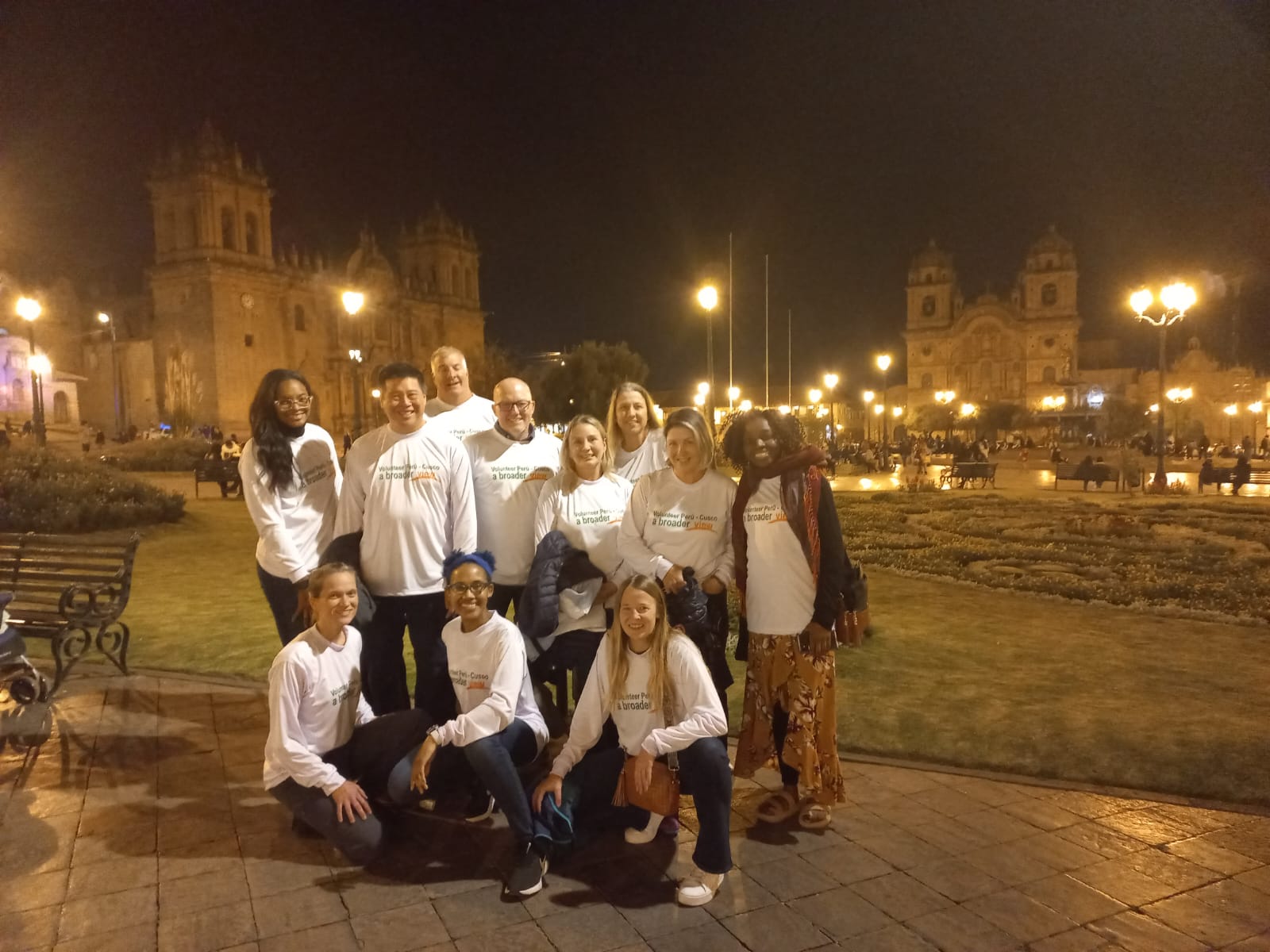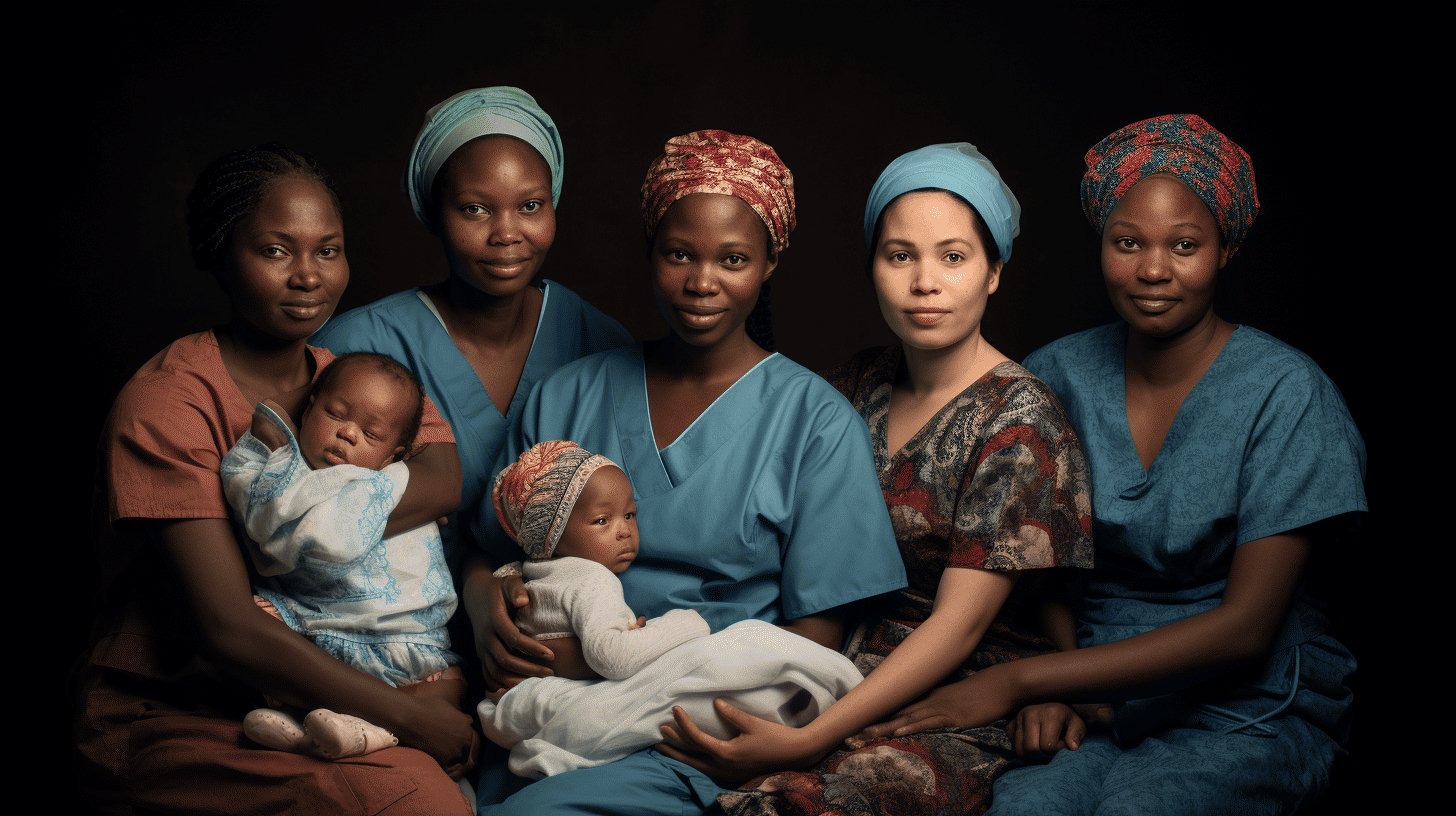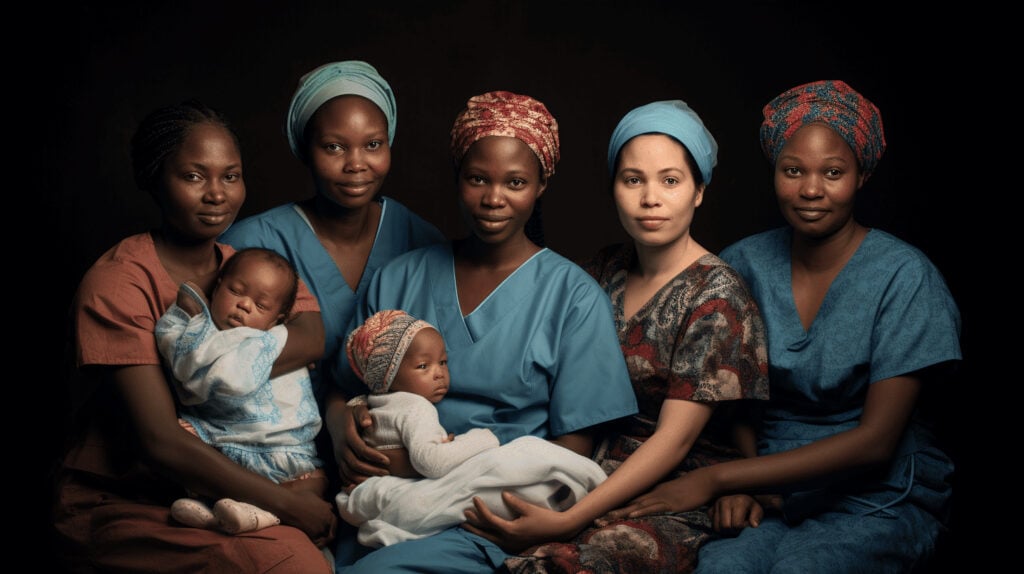Welcome, dear readers! 🙏 Today, we’re diving into a heartwarming yet critically essential topic — the role of Midwives and Obstetricians in empowering mothers and babies, not just domestically, but across the globe. Did you know an increase in the number of midwives can significantly reduce maternal and infant deaths? Or that midwifery-led continuity of care improves Sexual, Reproductive, Maternal, Newborn, and Adolescent Health (SRMNAH) care?
This enlightening journey uncovers the challenges faced in the maternity care workforce, the state of midwifery in developed countries such as the U.S., and the significant impact these ‘miracle-workers’ can have on maternal health and women’s empowerment.
We’ll also shed light on opportunities to volunteer abroad in initiatives promoting women’s empowerment and maternal health, like those provided by A Broader View Volunteering. This superpower of helping mothers and newborns while contributing to a more equal world is fascinating, isn’t it?
So stay with us, we promise you’ll be inspired, informed, and more appreciative of the midwives and obstetricians around you. Let’s start the journey! 👩⚕️🌍👶
Challenges in the Maternity Care Workforce
The maternity care workforce is a cornerstone of any healthcare system, ensuring the safe passage of new life into the world. However, this critical sector is fraught with challenges that range from staff shortages to disproportionate representation of professions. These hurdles, combined with a high maternal mortality rate, present a pressing issue that needs immediate attention.
Ob-gyns Overrepresentation
Allow us to deep-dive into the matter, kicking off with the disproportionately high representation of obstetricians and gynecologists (ob-gyns). Often, ob-gyns are the first to come to mind when we picture maternity care. However, a lopsided focus on these practitioners tends to overshadow the valuable contributions made by others in the field.
Overrepresentation of ob-gyns may steep providers and patients alike in a medicalized perspective of childbirth, potentially tipping the balance towards unnecessarily invasive interventions. To foster a more holistic view of childbirth, actions should be taken to promote an even distribution of diverse professionals in maternity care.
Shortage of Midwives
Another prominent issue ties into the critical shortage of midwives. Recent data revealed that, shockingly, in the U.S., there were only four midwives employed per 1,000 live births in 2018. 😮 This shortage widens the gap in accessibility and choice for expecting mothers desiring a less medicalized birth experience.
A proper integration and appreciation of midwives would go a long way in ensuring a varied, well-rounded, and patient-centric maternity care workforce. Midwives offer a nurturing, personalized touch and value the natural process of childbirth, often making the experience more comfortable and less daunting for expectant mothers.
High Maternal Mortality Rate
Last, but certainly not least, let’s turn our attention to an unsettling statistic: 287,000 women tragically lost their lives during and following pregnancy and childbirth in 2020. This alarmingly high maternal mortality rate begs the question: Are we doing enough?
To curb this, we need a solid workforce equipped with the necessary skills, bolstered by a well-rounded team of different healthcare professionals. A multi-pronged approach that prioritizes quality care, accessibility, and patient choice is absolutely paramount.
To draw a curtain on this discussion, we are reminded of the beautiful phrase, “it takes a village to raise a child”. In the same sense, it takes a diverse and robust maternity care workforce to ensure safe and healthy childbirth. Strengthening this critical workforce is no small task, but it is undeniably a pursuit worth undertaking. Here’s to more steps forward in rectifying these challenges, and to a future where every expectant mother feels safe, heard, and cared for. 🤱🏻💕
Significance and Impact of Midwives
There’s a vital role that quietly plays out behind the scenes in maternal healthcare, one that’s celebrated, yet often unsung – the role of a midwife. The impact and significance of these health professionals cannot be overstressed because they are the custodians of a journey that brings life into the world. Midwives make pregnancy safer, childbirth smoother, and the start of new life healthier.
Reduction in Maternal and Infant Deaths
Midwives are trained to provide comprehensive prenatal care, assist in labor and delivery, as well as postnatal support. It’s not just about delivering babies; midwives provide a lifeline for many mothers and infants, especially in high-risk situations.
- The world health organization reveals that the helping hands of a midwife directly contribute to fewer complications in pregnancy and childbirth.
- Midwives’ holistic approach to childbearing has been associated with improved outcomes across a whopping 56 different measures!
- These beneficial results include significantly lower morbidity and mortality among both mother and child.
Improvement in SRMNAH Care
A highlight of the importance of midwives is their distinctive role in Sexual, Reproductive, Maternal, Newborn, and Adolescent Health (SRMNAH) care.
- Midwives are identified as capable of delivering a staggering 87% of all essential SRMNAH services.
- They help ensure that women and their newborns receive quality healthcare during pregnancy, birth, and the postpartum period.
- Their expertise also extends to providing care and guidance during the vulnerable adolescent years, a pivotal time in any girl’s life.
Not only does their assistance contribute towards the well-being of the mothers and newborns, but it also provides a sense of comfort and security, enhancing the overall birth experience.
Positive Impact on Maternal and Newborn Health
Midwives are not just birth attendants. They are companions, counselors, and advocates who play a crucial role before, during, and after the arrival of a newborn.
- Studies suggest midwives educated and regulated according to international standards can significantly improve maternal and newborn health outcomes.
- Their continued care and support often result in healthier pregnancies and happier, healthier babies.
- Most importantly, they empower women to make informed decisions about their bodies and their births.
In a world where health disparities are alarmingly glaring, midwives have the potential to bridge the gap. The commendable contributions of midwives make them indispensable to the journey of motherhood and the fabric of any successful healthcare system.👏🎈 Their role is multi-faceted and extends well beyond the act of birth itself, contributing significantly towards creating a healthier and safer world for mothers and newborns alike.
Status of Midwives in Developed Countries
The role of midwives is increasingly becoming significant, and today we delve into their often underappreciated and critical assistance in childbirth within developed nations. Surprisingly, despite the healthcare advancement in these nations, the implementation and acceptance of midwifery is sometimes shockingly subpar, especially when compared globally. We will take a closer look at the current status of midwives and their involvement in births within the developed world. 🌐
Statistical Data on Midwife Involvement in Births
Did you know that the involvement of midwives in maternity health roles varies greatly from one developed country to another? In the United States, for instance, midwives attended just 12% of births in 2021. However, the story is quite the opposite in the United Kingdom. Here, every 1,000 births are graced by the presence of 43 competent midwives, making childbirth a less daunting experience for expectant mothers. 🇬🇧🇺🇸
Perhaps, these glaring gaps can be attributed to distinct cultural views and accepted norms around childbirth. Or maybe legislation plays a key role in promoting or discouraging the broader acceptance of midwives. Nonetheless, such statistics reveal that there’s a lot to be done to harmonize the role of midwives across the developed world.
Comparison Between U.S. and Other Industrialized Countries
When we further explore the stats, the differences in midwife-involved childbirths are even more profound and eye-opening. In other developed countries such as Sweden, France, and Japan, midwives play a central role, attending close to 75% of births. 🇸🇪 🇫🇷 🇯🇵
What factors contribute to this huge variance, and why does the U.S., a leader in many other healthcare aspects, lag behind such countries when it comes to midwife-assisted births? This wide disparity signals a need to evaluate the policies, cultural attitudes, and possibly the education and training of healthcare providers in relation to midwifery.
The benefits of midwifery, such as the provision of a more personalized birthing experience, encouraging natural birth, and promoting a sense of female empowerment are well documented. The high involvement of midwives in other developed countries suggests they recognize these advantages. As such, there’s a pressing need to push for a greater appreciation of midwives in the U.S., even as the country strives to ensure quality and equitable healthcare for all women. 💪 🚺
So, the next time you think about healthcare in developed countries, spare a thought for midwives. Their role is often undervalued, but their dedication and involvement in bringing new life into this world is immeasurable and utterly commendable. Let’s equally strive to change the narrative, one birth at a time, for the betterment of maternity healthcare and the lovely mothers-to-be across the globe. 💖 🌍
Advocacy for Midwife-Led Continuity of Care
The maternal and newborn health sector has long recognized the invaluable role that midwives play. Their expertise and dedication often go beyond simple childbirth assistance, extending into a realm called midwife-led continuity of care. This approach towards childbirth dramatically benefits both the mother and her newborn. As incredible as it may sound, there is a dire need for data-driven advocacy for midwife-led continuity of care, and the seriousness towards improving these specific health services cannot be understated.
Countries around the globe are witnessing impressive strides in this area. More intriguing is the fact that most births assisted by midwives now occur in hospitals, contrary to past trends. This spells nothing but positive news for upcoming mothers since births in hospitals usually come with better healthcare facilities and expert assistance. Additionally, these settings have been linked with relatively low rates of cesarean sections, making it an ideal situation for mothers who prefer natural births.
Why is a midwife-led continuity of care so significant? Let’s take a closer look:
- Personalized and Continuous Care: Midwives build a relationship with the mother, providing personalized and constant support throughout the pregnancy, birth, and postnatal period. This comprehensive care system significantly contributes to the mother’s mental and physical well-being.
- Low Intervention Rates: Studies have shown that people who go through midwife-led care experience fewer interventions during childbirth. These include epidurals, episiotomies, and caesarean sections.
- Emotional Support: One of the biggest advantages of midwife-led care is emotional support. Not only do midwives provide clinical care but also emotional support that is invaluable during this period.
“Birth is not just about making babies. It’s about making mothers; strong, competent, capable mothers who trust themselves and believe in their inner strength.” – Barbara Katz Rothman.
The impact of midwife-led continuity of care is far-reaching. It doesn’t just stop at mother and child; it extends to families, communities, health systems, and nations. However, to amplify its effect, it is essential to bolster advocacy for this model of care. With collaborative effort and concrete data to back it up, the path to better maternal and newborn health services is certainly within reach. We need not wait for tomorrow to make these changes – the time to act, to voice, and to empower is unquestionably now. The baby steps taken today will undoubtedly lead to giant leaps tomorrow.
Women’s Empowerment and Maternal Health
The journey to motherhood is an utterly unique and life-changing experience fraught with diverse challenges. From routine prenatal visits to unforeseen complications, every expectant mother needs a robust support system to navigate this beautiful but sometimes arduous journey. However, given the dominant cultural narrative in many societies that women’s primary role is being mothers, an intriguing aspect often overlooked is the potent influence of women’s empowerment on maternal health. This intertwine is becoming increasingly apparent as researchers delve deeper into the intersection of gender inequality and maternal well-being. 🤰💪🚺
Women’s empowerment stands as a beacon of hope for thousands who believe childbirth shouldn’t have to be a roll of the dice for women. It embodies a wholesome approach to gender equality, focusing on creating opportunities for women to participate in societal roles beyond the domestic sphere. Interestingly, it plays a crucial part in positively impacting maternal health, transforming maternity from a daunting prospect into a moment of joy. 🎉💜
Here’s how:
- Access to Quality Healthcare: Empowerment allows women to overcome social barriers and access quality healthcare facilities. These women are better able to advocate for themselves, seeking prenatal care and postnatal guidance which significantly reduces risks associated with childbirth.
- Socio-Economic Power: Empowered women often have a say in their economic matters, which enables them to invest in their health. Ability to afford necessary healthcare services can make a world of difference in maternal health outcomes.
- Knowledge and Awareness: Empowerment isn’t just about socio-economic power; it also includes spreading knowledge and awareness about maternal health. An empowered woman is a well-informed woman who understands her right to quality healthcare. ⚕️
“Women who are empowered have a greater sense of self-worth, a belief in their ability to secure desired outcomes, and the ability to influence the social change needed to improve their health outcome for them and their babies” – Women Health Expert
Coming a long way in addressing maternal health, we still have miles to go. But one thing is crystal clear: women’s empowerment has a considerable and essential role to play. By cultivating an atmosphere where every woman feels empowered, we can engineer healthier, happier futures for mothers all over the globe.
Volunteering Abroad in Women’s Empowerment and Maternal Health
In a world brimming with social causes, volunteering abroad in women’s empowerment and maternal health stands out as a uniquely challenging yet fulfilling opportunity. With the right organization, you can immerse yourself in a culturally rich experience while significantly advancing the lives of disadvantaged women and their families. One such transformative organization is “A Broader View Volunteering” who earnestly work towards ensuring better medical prospects for women across the globe.
A Broader View Volunteering
Underrepresented mothers and their newborns often encounter grave disparities in healthcare, and it’s here where the compassionate efforts of A Broader View Volunteering come into play. These selfless teams, consisting of professionals and volunteers from various walks of life, work tirelessly to bridge this healthcare gap.
Dedicating your time and skills with them, you’ll get to witness and contribute to the real-time improvement in the overall health and well-being of women and children. From providing antenatal care in remote areas of South America to offering reproductive health education in several African nations, the domains of impact are wide and growing.
While medical professionals are always in high demand, you don’t necessarily need a medical degree to contribute. Volunteers can offer their expertise in various forms:
- Advocacy: Spreading awareness about women’s issues and educating communities.
- Education: Teaching basic hygiene, nutritional needs, and the significance of regular health check-ups.
- Support: Providing emotional assistance, encouraging the pursuit of education and self-improvement.
Now, you might be thinking, “Can I make a difference?” or “I’m not a healthcare professional.” Don’t stress!🙅🏻♀️ This is what makes “A Broader View Volunteering” so exceptional. They welcome volunteers from all professional backgrounds to join their mission. So, whether you are a seasoned nurse, a fresh medical graduate, a high school student, or even a retiree, the opportunity is open for you!
Imagine putting your skills and passion to use in a setting where it’s needed the most, a scenario wherein you find yourself empowering underserved women, and, simultaneously, learning from their incredible resilience, courage, and spirit. It’s not just volunteering—it’s a life-changing adventure.
Quoting one Nurse Missions Volunteers, “I was there to teach them, but they taught me so much more about strength, endurance, and love.”
So, ready to embark on this journey? Head over to volunteer with A Broader View. You’ll leave knowing you’ve genuinely made a lasting impact, not just on the lives of the women and children you’ve served but also on yourself. It’s an experience you’ll cherish forever. And, who knows? This may just be the starting point of your lifelong commitment to global volunteer work. Keep that spark alive, and let’s make the world a better place, one mom at a time! 💪🏼 🌍 💖
Conclusion
From managing labor complications to fostering safe environments for newborns, midwives play an indispensable role in maternal and newborn health. A shift towards midwife-led continuity of care not only promises better health outcomes for mothers and their babies but signifies a step towards women’s empowerment. As we advocate for quality, equitable care for all mothers globally, it’s crucial to consider the significant role of these healthcare providers in achieving this goal.
Taking part in women’s empowerment and maternal health projects as a volunteer can be a meaningful way to contribute to these goals. A leading international volunteer organization, A Broader View Volunteers, provides people with such opportunities. By joining their cause, you can help empower communities and bring about a positive change in women’s health, ensuring a brighter future for mothers and babies worldwide. 🌍🤱💪
Frequently Asked Questions
- What services do midwives and obstetricians provide?
Midwives and obstetricians provide a range of healthcare services for pregnant women, including prenatal care, childbirth assistance, postpartum care, and support to ensure a healthy mother and baby.
- How can midwives and obstetricians empower mothers and babies abroad?
Midwives and obstetricians can empower mothers and babies abroad by providing access to quality healthcare, education on prenatal and postnatal care, safe delivery practices, breastfeeding support, and guidance on newborn care.
- Why is it important to empower mothers and babies abroad?
Empowering mothers and babies abroad is crucial for improving maternal and infant health outcomes, reducing infant mortality rates, promoting healthy development, and ensuring a safe and positive childbirth experience for both the mother and baby.
- How can I volunteer as a midwife or obstetrician abroad?
To volunteer as a midwife or obstetrician abroad, you can reach out to organizations like www.abroaderview.org. They offer programs that allow healthcare professionals to contribute their skills and expertise to communities in need.
- What qualifications do I need to volunteer as a midwife or obstetrician abroad?
The specific qualifications may vary depending on the organization and project, but generally, you will need to have appropriate medical qualifications, experience in midwifery or obstetrics, and a willingness to adapt to different cultural settings.
-
Safe Solo Volunteering Abroad | Empowerment FemalesThrough Service with ABV

Embrace the adventure of a lifetime with ABV’s supported solo volunteering programs. Create lasting friendships, make a real difference, and explore the world safely under a supportive umbrella. Recommend Peru, Ecuador, Colombia, and more. Table of Contents Introduction to ABV and Solo Volunteering Traveling solo can be a thrilling yet daunting endeavor. A Broad View…
-
Empowerment Through Sustainable programs: Volunteer Opportunities in Peru Cusco

Discover empowering volunteer opportunities in Peru Cusco with www.abroaderview.org. Support sustainable programs and make a positive impact while gaining valuable experiences.
-
Midwives & Obstetricians: Empower Mothers & Babies Abroad

Discover how midwives and obstetricians from abroad can empower mothers and babies through the programs offered by www.abroaderview.org. Make a difference today.



